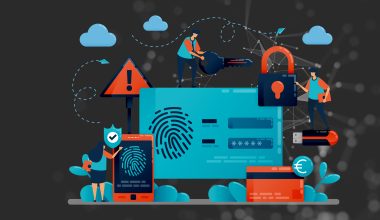Securing IT infrastructure is vital for modern businesses. While IT security forms the foundation, it is just one part of a comprehensive security strategy. Cyber security is crucial in filling the gaps left by traditional IT security.
IT Security: The foundation
IT security encompasses protecting hardware, software, networks, and data, ensuring access management, data integrity, and disaster recovery. It acts as a defensive barrier; securing networks and safeguarding sensitive information. IT security focuses on protecting infrastructure, ensuring authorised access, and maintaining system operations against internal and external threats.
Key IT security measures include:
- Endpoint security: Protecting devices like computers and phones from malware.
- Data security: Encrypting data to prevent unauthorised access.
- Disaster recovery plans: Ensuring recovery from breaches or data loss.
- Access control: Enforcing multi-factor authentication (MFA) for protection.
While these measures are essential, they may not fully address modern cyber threats.
Why IT security needs cyber security
While IT security lays the foundation, it doesn’t address rapidly evolving cyber threats. Attacks like ransomware, phishing, and advanced persistent threats (APTs) require proactive, specialised defence. This is where cyber security comes in.
Cyber security protects internet-connected systems from real-time threats, such as hacking and malware, which can bypass IT security. It provides an extra layer of defence, focusing on detecting and responding to attacks in real time. Key elements of cyber security include:
- Threat intelligence: Identifying emerging threats before they cause harm.
- Incident response: Developing plans to mitigate the effects of an attack.
- Continuous monitoring: Constantly monitoring systems for signs of compromise.
Without cyber security, businesses remain vulnerable to threats that IT security cannot handle.
The future of security
As technology evolves, security strategies must adapt. Innovations like AI bring benefits but also introduce new risks. Both IT and cyber security are necessary to manage these risks and ensure compliance. Cyber security helps businesses safely adopt AI, while IT security protects data and enforces security policies.
Conclusion
In conclusion, IT security provides the foundation for protecting infrastructure, while cyber security actively defends against evolving threats. A strong defence requires both, ensuring systems are secure and resilient.
At FluidOne, alongside our cyber centre of excellence CSA Cyber, we offer IT and cyber security solutions to help businesses navigate the AI era. For more information, you can reach us through our website at www.fluidone.com, call us at 0114 292 3800 or email sheffieldenquiries@fluidone.com.








